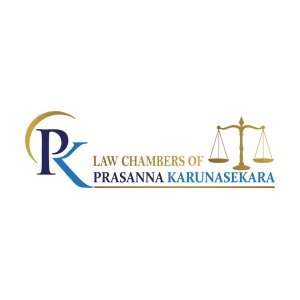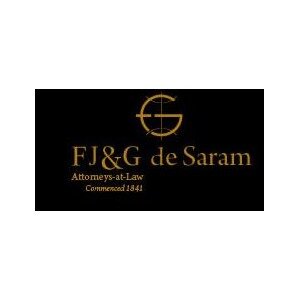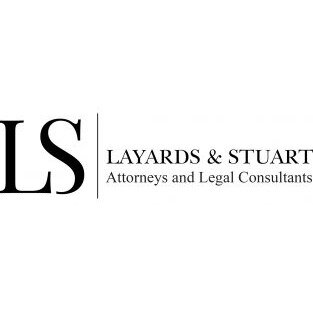Best Banking & Finance Lawyers in Sri Lanka
Share your needs with us, get contacted by law firms.
Free. Takes 2 min.
Or refine your search by selecting a city:
List of the best lawyers in Sri Lanka
About Banking & Finance Law in Sri Lanka
Banking & Finance law in Sri Lanka encompasses a wide array of practices related to the regulation of financial institutions, financial transactions, and the management of financial assets and liabilities. It includes overseeing how banks operate, ensuring consumer protection, preventing fraud, managing loans, and implementing monetary policies. Sri Lanka's banking sector is regulated primarily by the Central Bank of Sri Lanka, which develops and implements monetary policies to promote economic stability and growth. This area of law is crucial for maintaining the integrity of the financial system and for protecting the interests of consumers, businesses, and the broader economy.
Why You May Need a Lawyer
There are several situations where individuals or businesses may require legal assistance in the realm of Banking & Finance:
- Complex financial transactions, such as mergers and acquisitions
- Disputes over loan agreements or mortgage issues
- Regulatory compliance and licensing for financial institutions
- Protection against financial fraud and other unethical practices
- Issues related to debt recovery and restructuring
- Seeking advice on investment prospects
- Navigating bankruptcy proceedings
Local Laws Overview
Sri Lanka's legal framework for Banking & Finance is largely governed by statutes such as the Banking Act, the Financial Transactions Reporting Act, and the Companies Act. Key aspects include:
- Regulation of Banks: This involves strict guidelines on the establishment, operation, and dissolution of banks and other financial institutions.
- Consumer Protection: Laws to protect customers from fraudulent activities and ensure fair treatment in financial services.
- Anti-Money Laundering: Measures set forth in the Financial Transactions Reporting Act to prevent money laundering and terrorist financing.
- Investment Law: Regulations that govern the securities market, including the trading, issuance, and regulation of securities.
Frequently Asked Questions
What is the role of the Central Bank of Sri Lanka?
The Central Bank of Sri Lanka is the primary regulatory authority responsible for implementing monetary policy, issuing currency, regulating banks and other financial institutions, and ensuring financial stability in the country.
How do I open a bank account in Sri Lanka?
To open a bank account in Sri Lanka, you will typically need to provide identification, proof of address, and sometimes proof of income. Different banks may have specific requirements, so it is advisable to check with the individual bank.
What protections do consumers have against fraud?
Sri Lankan laws provide various consumer protections against fraud, including regulations on disclosure, dispute resolution mechanisms, and strict penalties for fraudulent activities.
What should I do if I suspect financial fraud?
If you suspect financial fraud, report it immediately to your bank and to the relevant authorities, such as the Financial Intelligence Unit of the Central Bank of Sri Lanka.
What is the procedure for loan recovery?
Loan recovery typically involves a legal process where the lender seeks to recover the outstanding debt from the borrower. This may include mediation, or, if necessary, court proceedings.
Can foreign nationals invest in Sri Lanka?
Yes, foreign nationals can invest in Sri Lanka, but there are certain restrictions and legal requirements they must adhere to, which may vary depending on the specific sector or type of investment.
What are the regulations concerning cryptocurrency in Sri Lanka?
Currently, there are no specific regulations governing cryptocurrencies in Sri Lanka, but the Central Bank has advised caution, highlighting the potential risks associated with their use.
How can I ensure my financial privacy?
The personal data of consumers is protected under privacy and data protection laws. Banks are obligated to maintain confidentiality and protect the financial information of their clients.
What steps are involved in filing for bankruptcy?
The bankruptcy process involves filing a petition in court, notifying creditors, and liquidating assets if necessary, under the supervision of a court-appointed trustee.
Where can I find more information about Banking & Finance regulations?
Information can be obtained from official publications of the Central Bank of Sri Lanka and legal consultancies specializing in financial law.
Additional Resources
For additional information or assistance, you may consider reaching out to the following resources:
- Central Bank of Sri Lanka
- Financial Intelligence Unit of Sri Lanka
- Securities and Exchange Commission of Sri Lanka
- The Bar Association of Sri Lanka
- Consumer Affairs Authority
- Local law firms specializing in Banking & Finance
Next Steps
If you need legal assistance in the field of Banking & Finance in Sri Lanka, consider taking the following steps:
- Identify the specific issue or query you have regarding Banking & Finance.
- Contact a law firm or attorney specializing in Banking & Finance law.
- Prepare all relevant documents and information to discuss with your lawyer.
- Consider consulting multiple legal professionals to get various perspectives and solutions.
Lawzana helps you find the best lawyers and law firms in Sri Lanka through a curated and pre-screened list of qualified legal professionals. Our platform offers rankings and detailed profiles of attorneys and law firms, allowing you to compare based on practice areas, including Banking & Finance, experience, and client feedback.
Each profile includes a description of the firm's areas of practice, client reviews, team members and partners, year of establishment, spoken languages, office locations, contact information, social media presence, and any published articles or resources. Most firms on our platform speak English and are experienced in both local and international legal matters.
Get a quote from top-rated law firms in Sri Lanka — quickly, securely, and without unnecessary hassle.
Disclaimer:
The information provided on this page is for general informational purposes only and does not constitute legal advice. While we strive to ensure the accuracy and relevance of the content, legal information may change over time, and interpretations of the law can vary. You should always consult with a qualified legal professional for advice specific to your situation.
We disclaim all liability for actions taken or not taken based on the content of this page. If you believe any information is incorrect or outdated, please contact us, and we will review and update it where appropriate.
Browse banking & finance law firms by service in Sri Lanka
Sri Lanka Attorneys in related practice areas.
Browse banking & finance law firms by city in Sri Lanka
Refine your search by selecting a city.

















